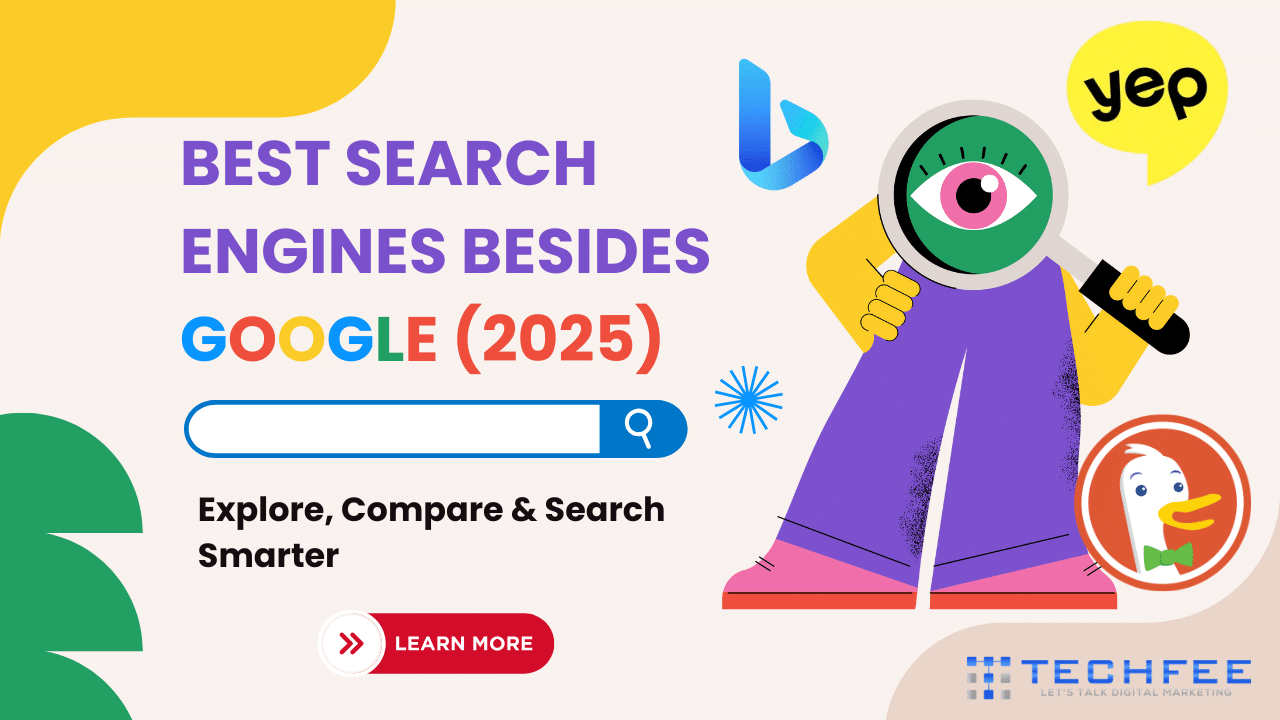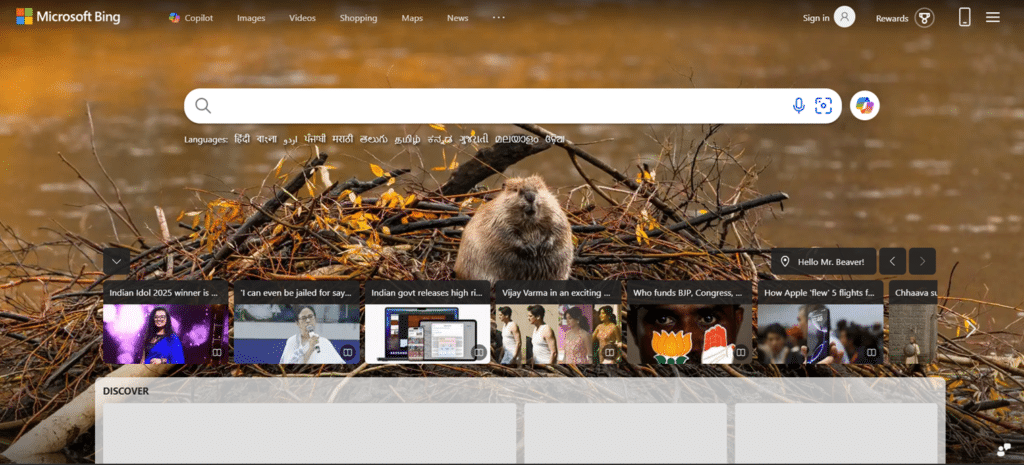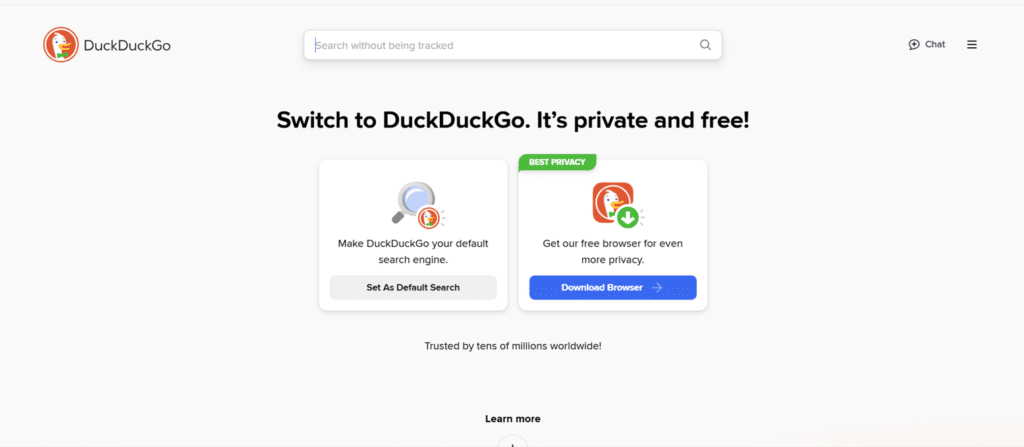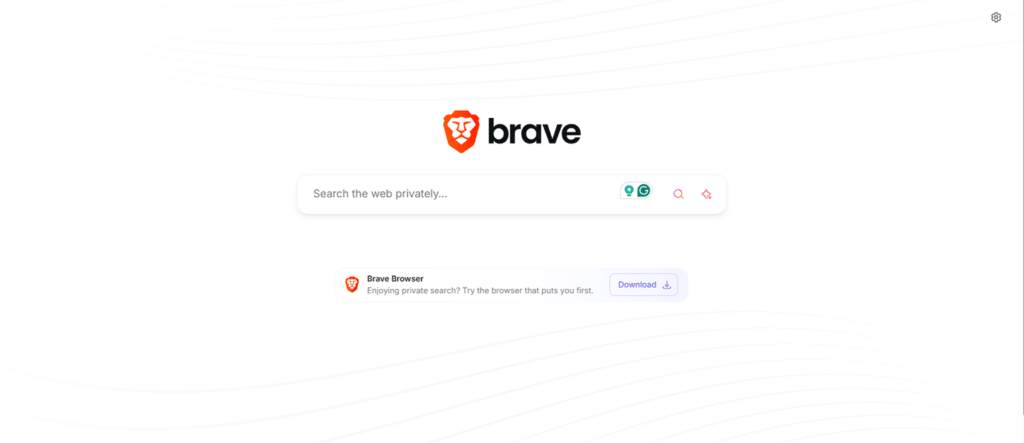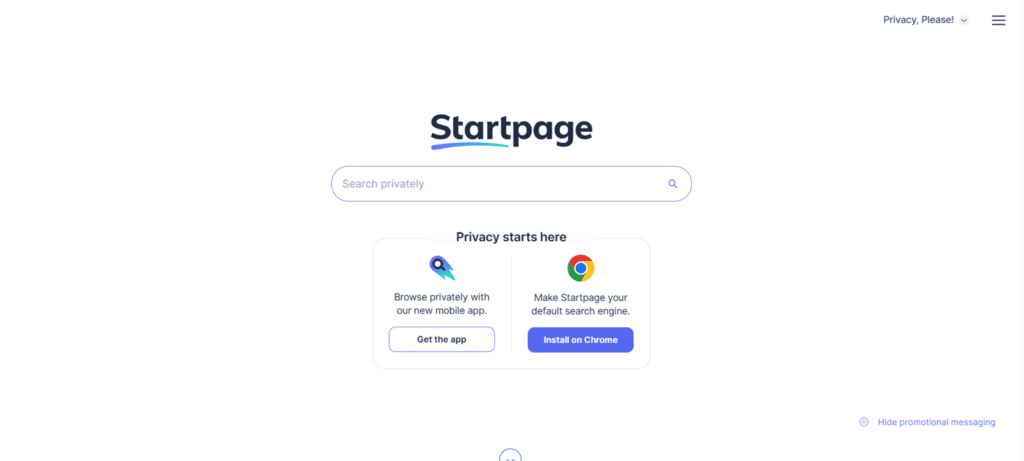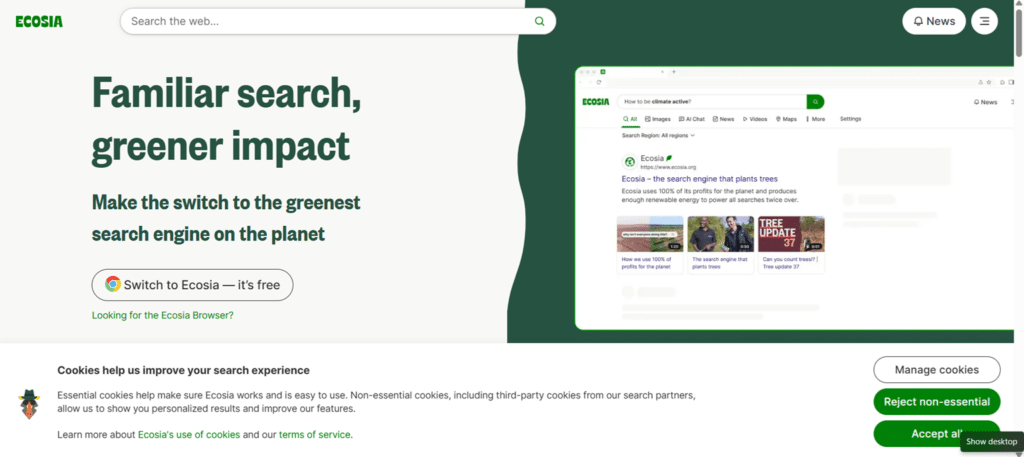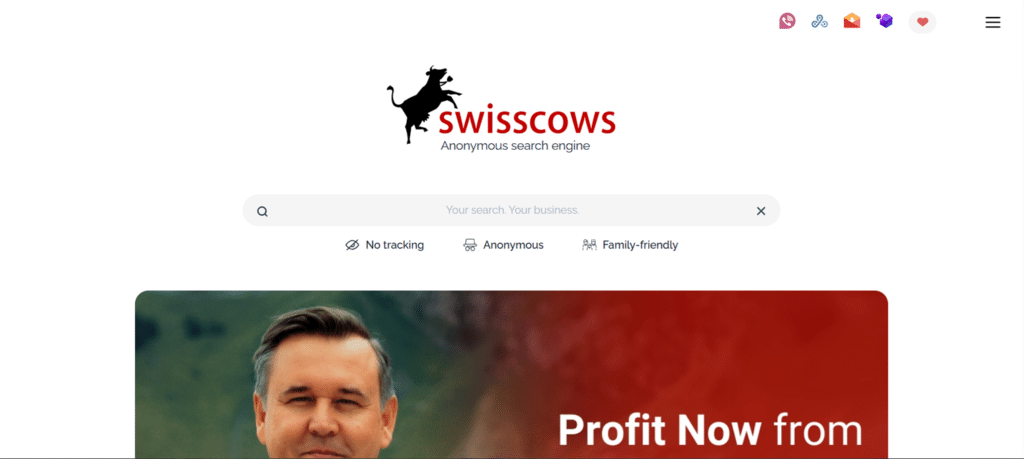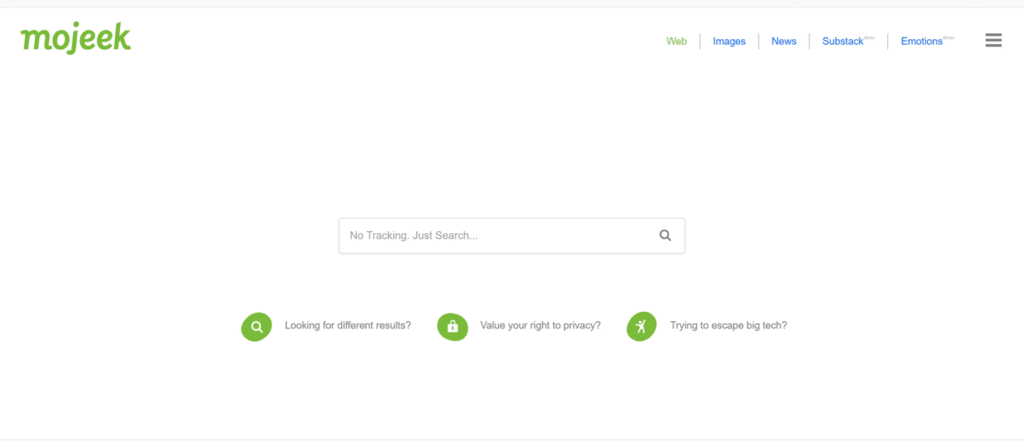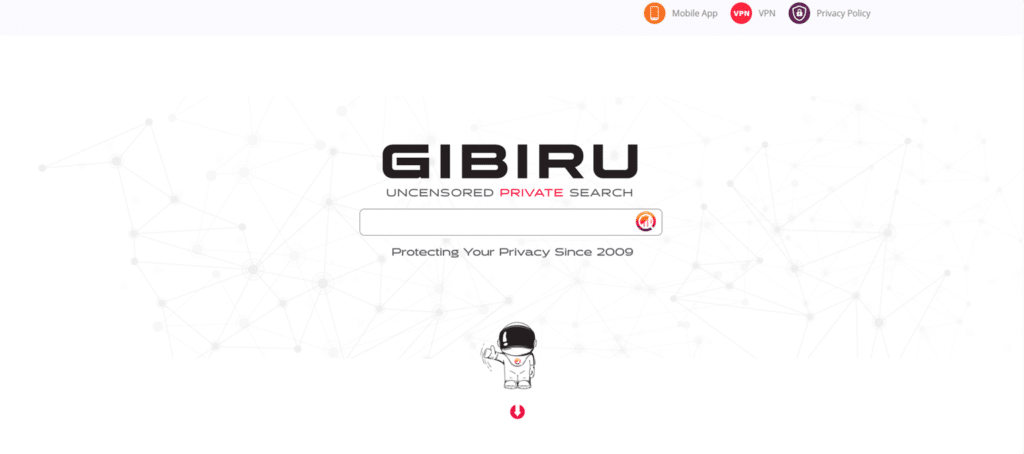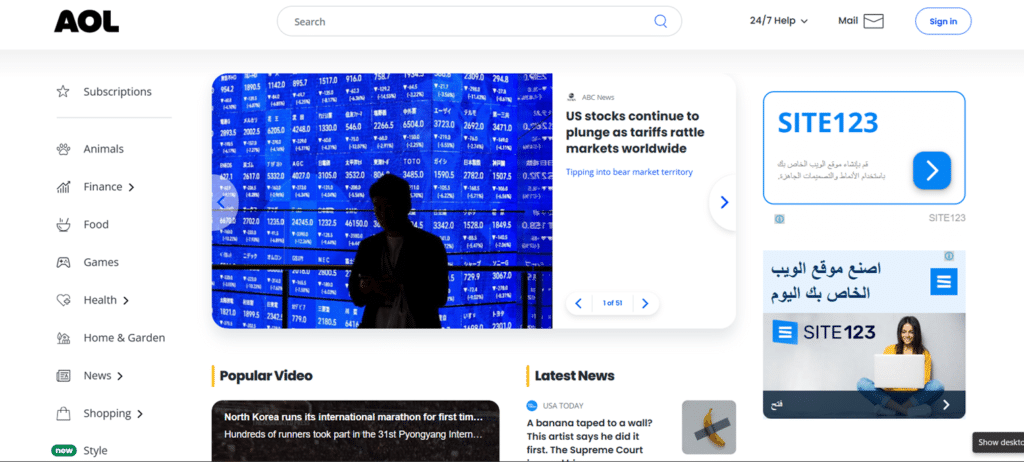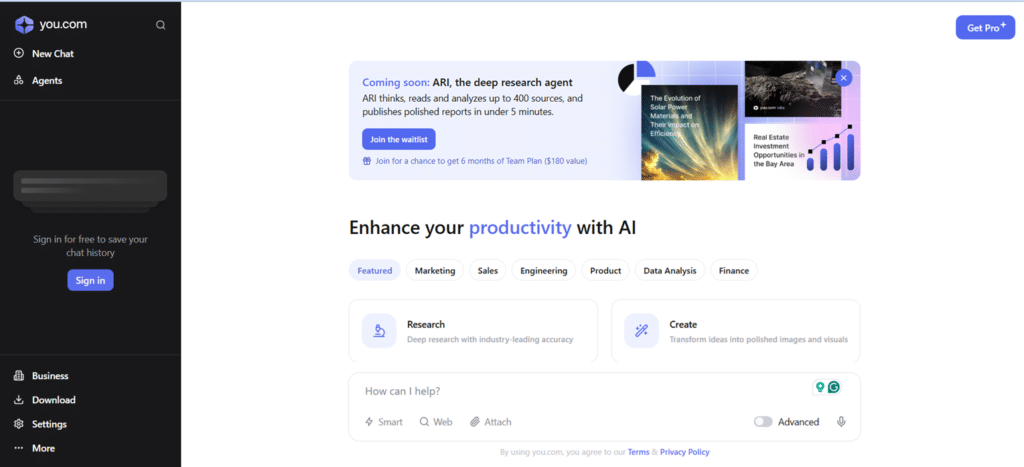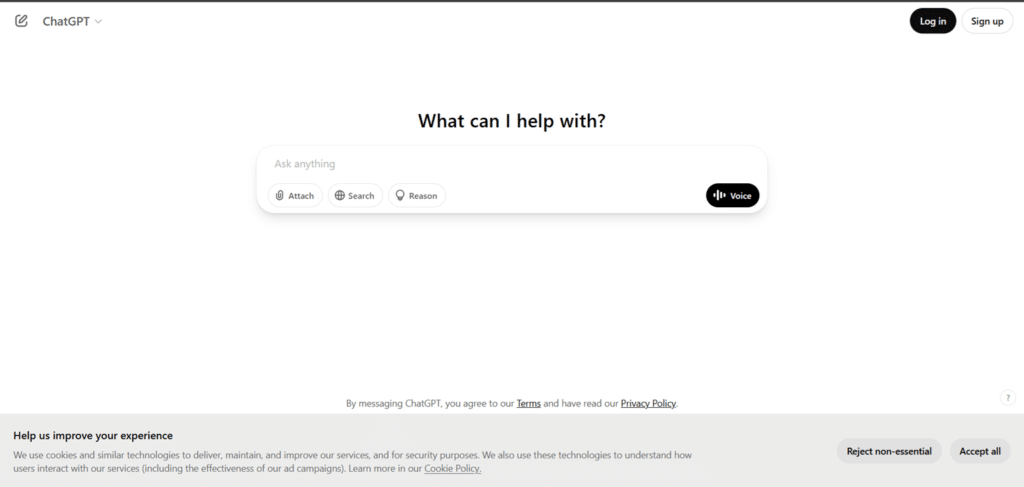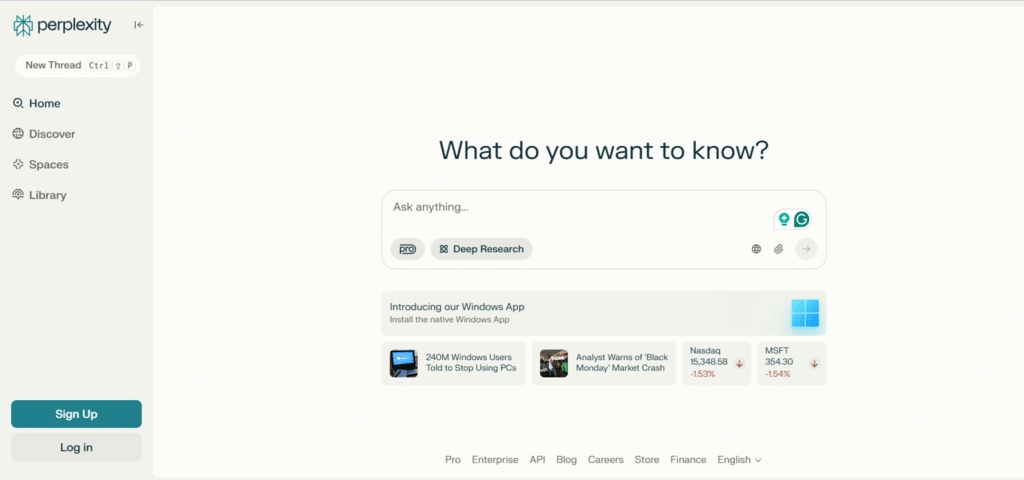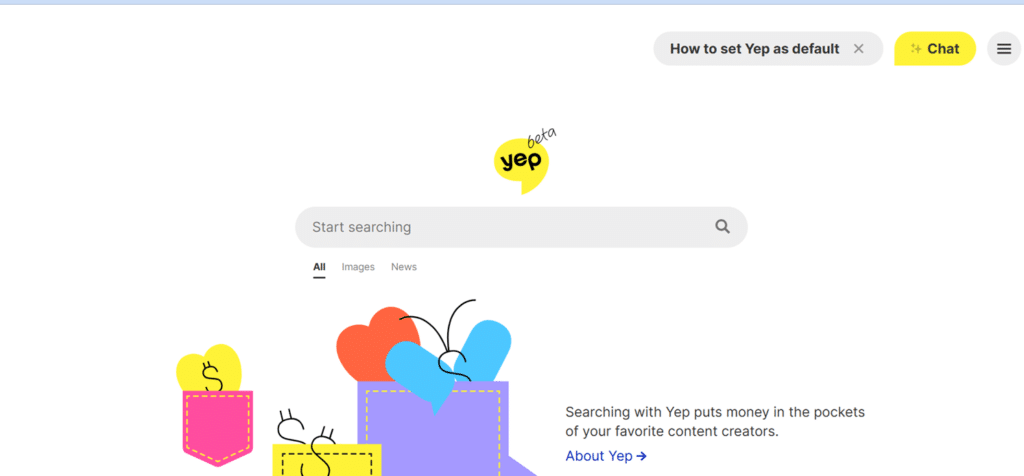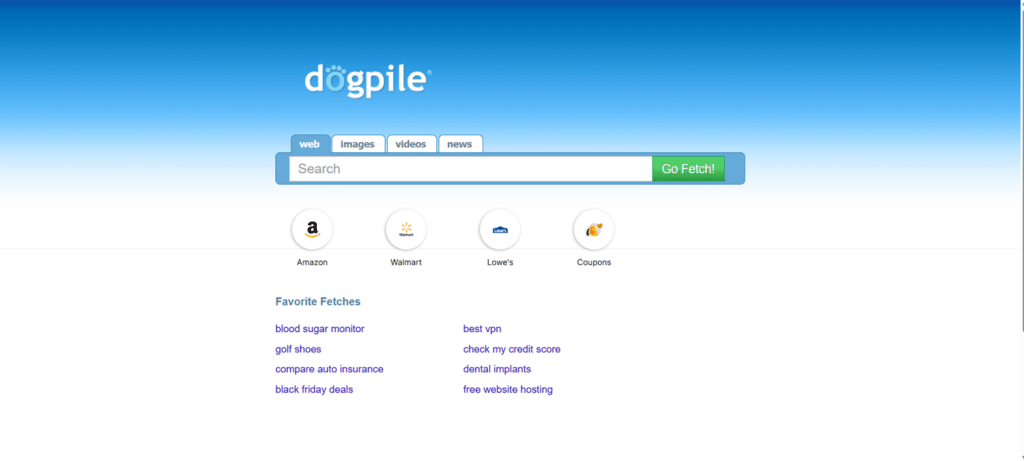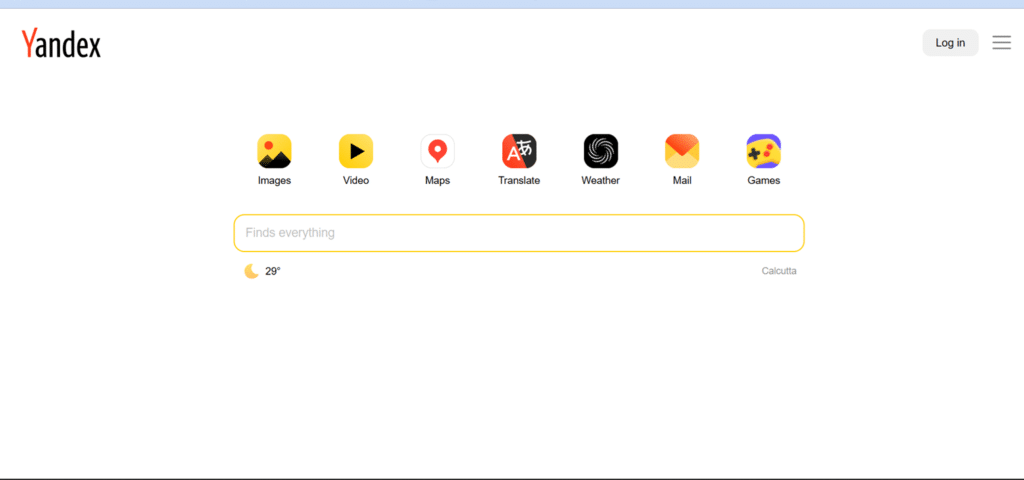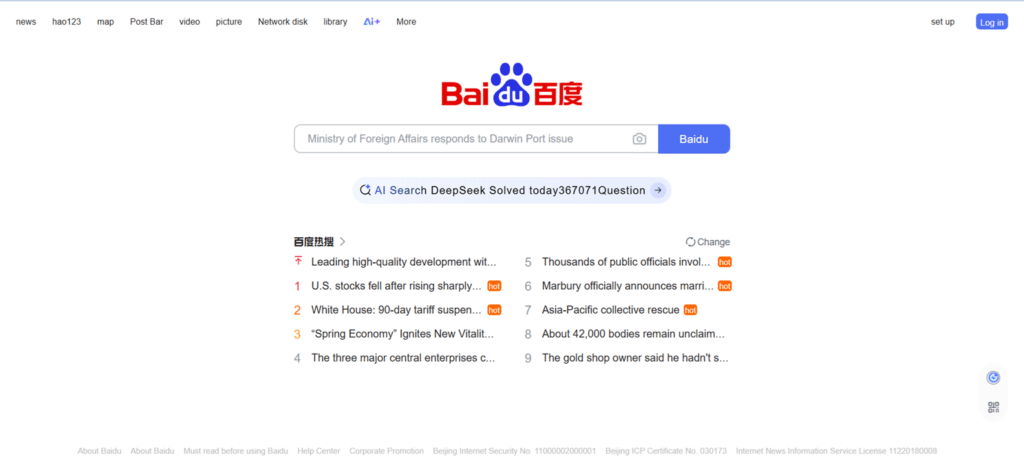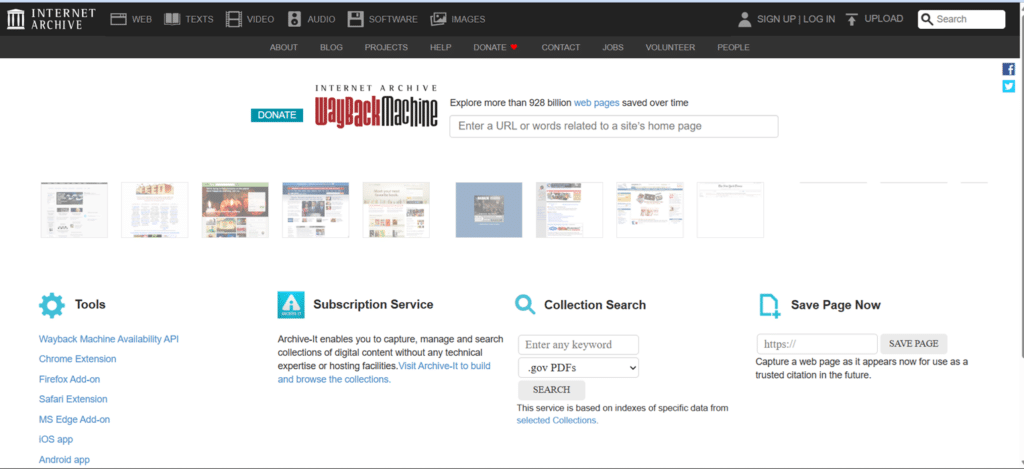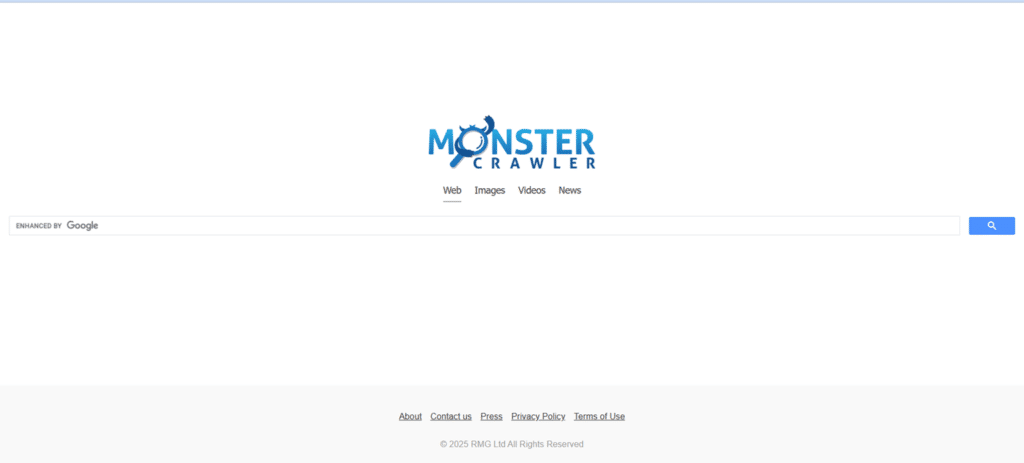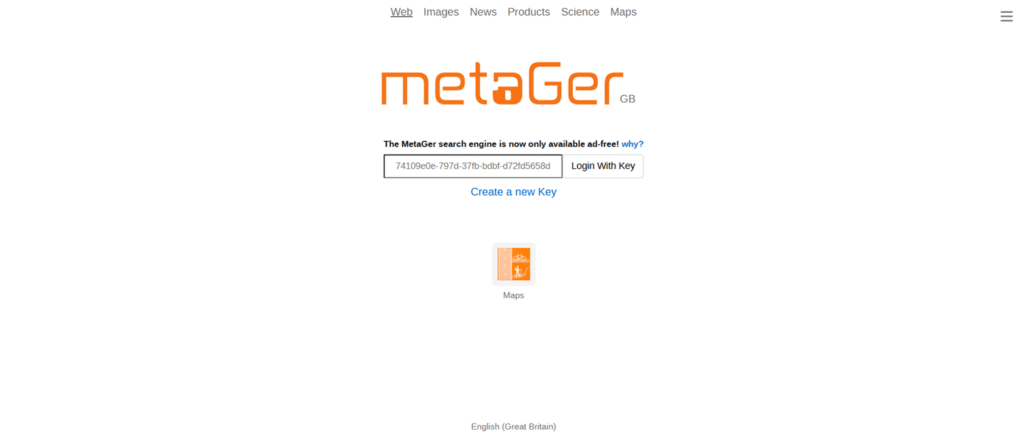If you’ve ever wondered, “Are there any other search engines besides Google worth using?“—you’re not alone, and this guide is here for you.
When it comes to searching the internet, we know Google is usually the first name that pops into our heads—and for good reason.
It’s fast, familiar, and holds a massive share of the search engine market. But here’s the thing: Google isn’t your only option anymore.
In fact, more and more people are starting to explore other search engines for reasons like privacy, unfiltered results, or simply wanting something fresh and different.
According to Smartling Statistics, in the United States, while Google dominates the search engine market (around 87.5%), other engines like Bing (with about 7.4% market share) and Yahoo (with 2.4%) also have a significant user base.
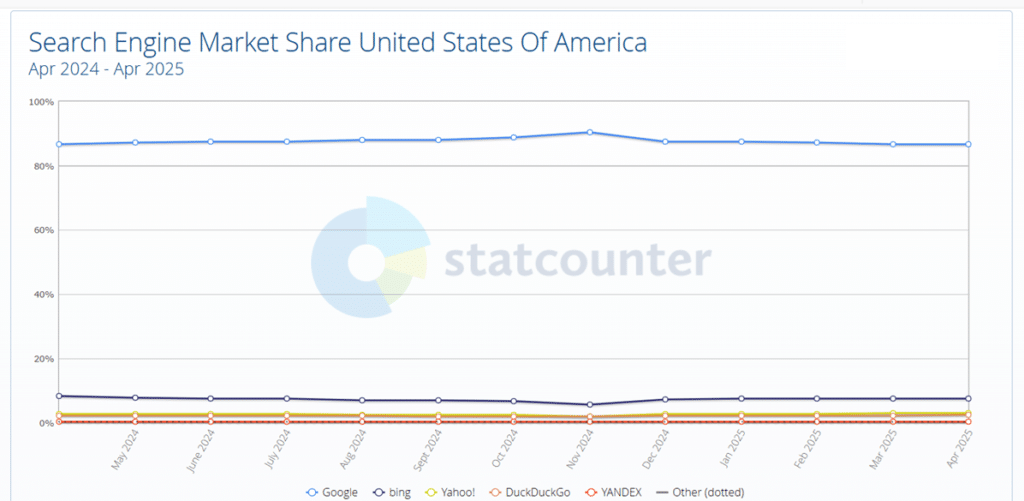
I’ll also share tips on how to choose the one that fits you best.
And here’s something most people don’t think about: depending too much on Google might be hurting your SEO in 2025.
So, while you’re exploring new search options, I’ll also help you spot and avoid some of the biggest SEO mistakes that could be costing you traffic.
Let’s dive in—this is your one-stop guide to search smarter, safer, and beyond Google.
🔎 Why People Are Looking for Google Alternatives
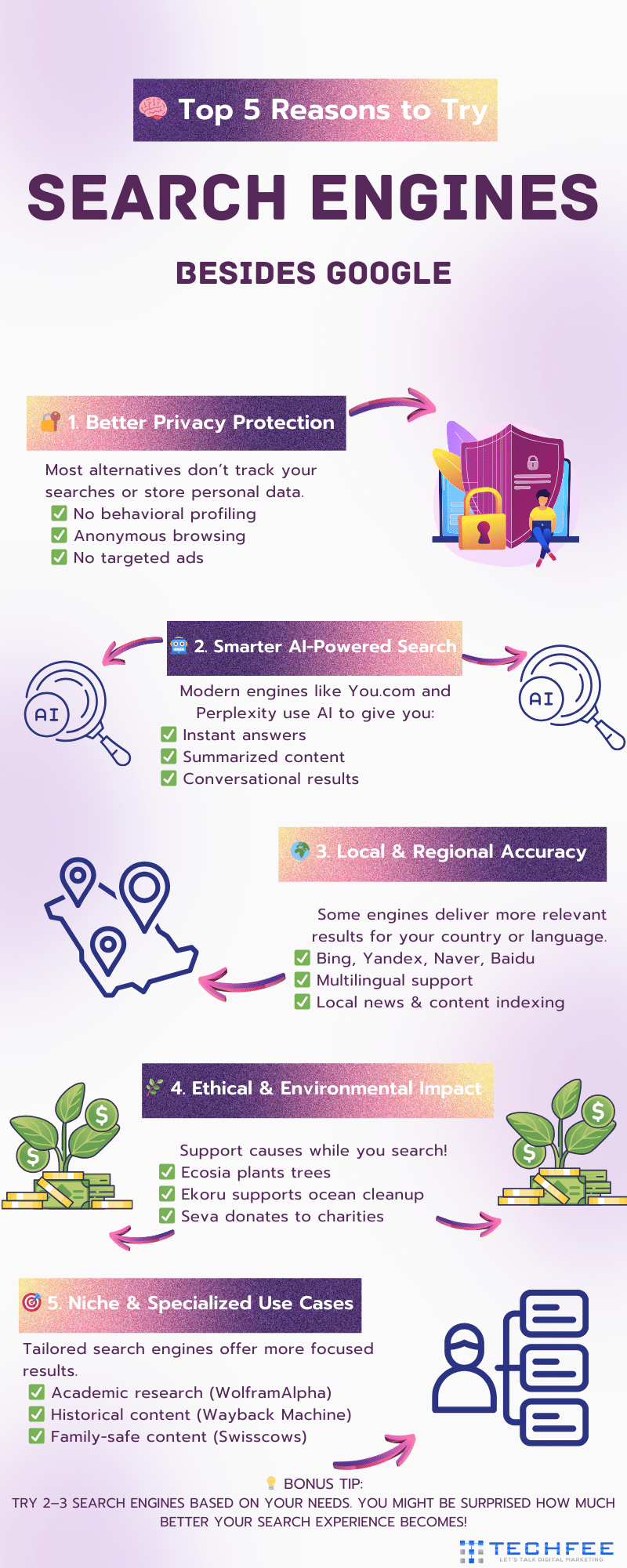
As powerful and convenient as Google is, more users today are beginning to question whether it’s still the best option for every search need.
Let’s break down why people are actively seeking alternatives to Google—and why it might be time for you to consider them too.
1. Privacy Concerns
One of the biggest reasons people are turning away from Google is data privacy.
Google collects a massive amount of user data to fuel its advertising engine—from your search history and location to your browsing behavior and personal interests.
While this data powers personalized experiences, it also raises serious concerns about how much control we really have over our digital footprint. Privacy-focused users are now looking for search engines that don’t track them, store search histories, or serve ads based on personal behavior.
2. Biased or Filtered Search Results
Another growing frustration is the filter bubble—Google’s tendency to show users results that align with their previous searches or perceived preferences.
This can limit your exposure to diverse viewpoints and independent sources.
Many users feel that Google’s algorithm sometimes favors big brands, paid advertisers, or mainstream narratives, making it harder to find unbiased or organic content.
Alternative search engines offer more neutral and unfiltered search experiences, which can be a game-changer for researchers, journalists, and critical thinkers.
3. Censorship and Monopoly
As a dominant tech giant, Google has been at the center of global debates around censorship and monopoly power. In some countries, users have experienced restricted or manipulated search results.
In other cases, websites or viewpoints are downranked or removed altogether. This has led to a growing concern that one company should not have so much control over the world’s information.
Many users are now exploring decentralized or independent search engines that promote open access and transparency.
4. Performance and Feature Limitations
While Google is feature-rich, it isn’t always the best tool for every type of search.
Some users need faster answers, better filtering options, or more privacy controls—things that other search engines are now doing better.
For example, certain search engines offer ad-free experiences, faster performance, or better search accuracy for specific niches like research, science, or open-source content.
For these users, Google often feels bloated or too general.
5. Desire for Innovation
There’s also a strong desire for fresh, innovative search experiences—and many new engines are delivering just that.
AI-powered search tools like Perplexity or You.com are redefining how we interact with information, offering conversational results, summaries, and real-time updates.
Others like Yep are flipping the model by sharing ad revenue with content creators, while platforms like Ecosia use search profits to plant trees.
These alternatives bring exciting value beyond just answering queries—they align with users’ values, support causes, or offer tools that Google simply doesn’t.
🌍 Types of Search Engines Available Beside Google
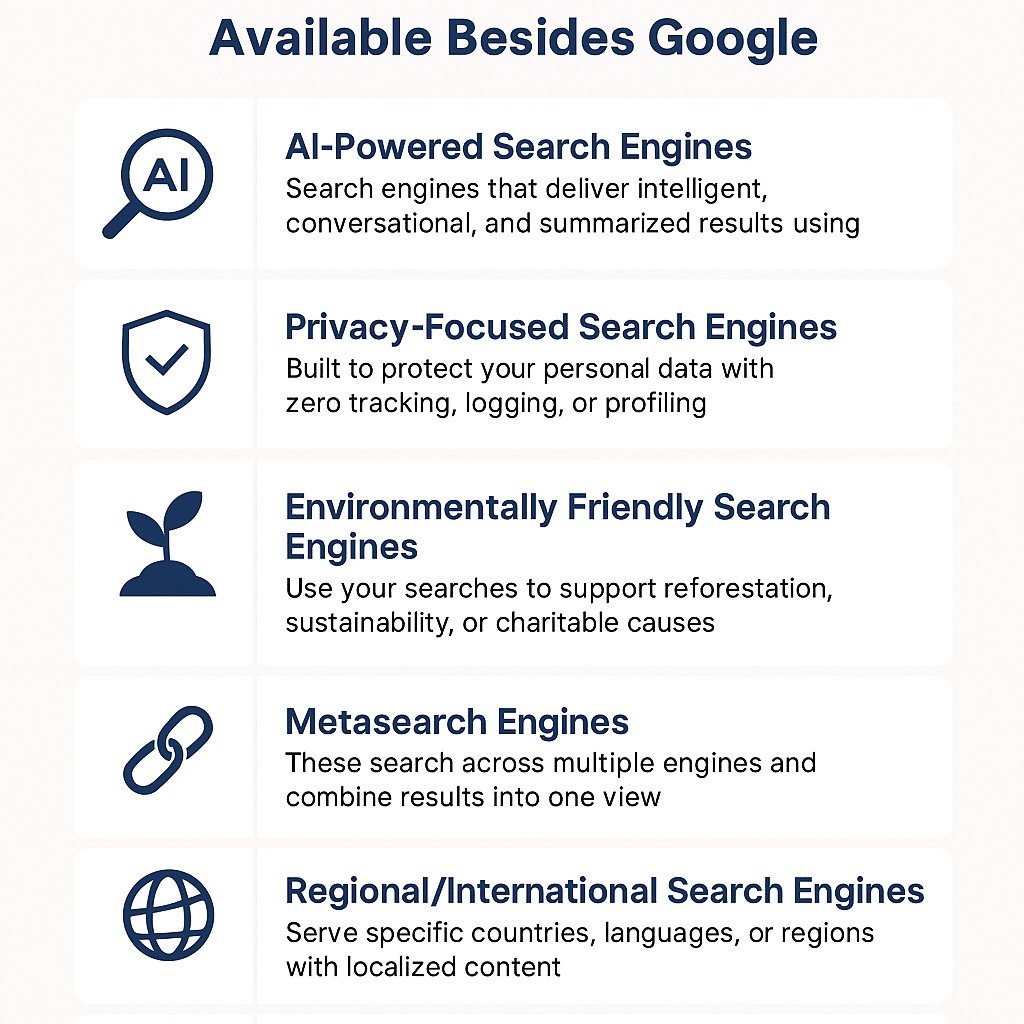
The world of search engines has expanded far beyond Google, offering users a wide variety of platforms tailored to different needs and values.
Whether you’re looking for better privacy, more relevant results, or innovative features, there’s likely a search engine designed with you in mind.
Below are the main types of search engines available today—each serving a unique purpose.
1. AI-Powered Search Engines
AI-powered search engines are reshaping how we discover information online.
Unlike traditional search tools that simply match keywords, these platforms use artificial intelligence and machine learning to understand context, summarize answers, and even engage in conversational queries.
Engines like Perplexity AI, You.com, and Bing with Copilot are great examples.
They generate quick summaries, offer source transparency, and sometimes even act as digital assistants—perfect for users who want intelligent, real-time answers rather than pages of links.
2. Privacy-Focused Search Engines
If protecting your online identity is a priority, privacy-first search engines are your best bet. These platforms are designed to operate without tracking your search history, personal data, or location.
Search engines like DuckDuckGo, Startpage, Brave Search, and Mojeek take a strong stance against data harvesting and surveillance.
They provide clean, unbiased results without storing your information—ideal for users who want anonymity and freedom from personalized ads.
3. Environmentally Friendly Search Engines
Some search engines are built with a mission to make a positive environmental impact.
Ecosia, for example, uses its ad revenue to plant trees around the world. Others like Seva and Ekoru support clean water projects or reforestation initiatives.
These platforms give users the ability to turn everyday searches into meaningful action, making them popular among eco-conscious individuals and organizations.
4. Metasearch Engines
Metasearch engines don’t crawl the web themselves—instead, they pull results from multiple other search engines and aggregate them into one list.
This approach provides a broader perspective and can often help users find more diverse and comprehensive search results.
Tools like Searx, Dogpile, and Monstercrawler fall into this category. They are especially useful for users who want combined data without using Google directly.
5. Regional/International Search Engines
In many parts of the world, Google isn’t the top search engine. Countries like China, Russia, and South Korea have their own popular platforms that cater to local languages, cultural nuances, and government regulations.
Examples include Baidu (China), Yandex (Russia), and Naver (South Korea).
These regional search engines are essential for anyone doing international research, multilingual searches, or market-specific SEO.
6. Specialized/Niche Search Engines
Not all search engines aim to index the entire web. Some are built for specific industries, content types, or professional needs. For instance, WolframAlpha is perfect for complex calculations and data-driven queries, while the Wayback Machine lets users search historical snapshots of websites.
Others, like SlideShare, Wiki.com, or LinkedIn search, focus on presentations, knowledge sharing, or professional networking.
These engines are excellent tools for researchers, educators, developers, and industry professionals looking for precise information within a niche.
🧠 Best Other Search Engines Beside Google (2025)
Microsoft Bing has come a long way in recent years and is now one of the most capable alternatives to Google—especially in 2025, thanks to its deep integration with AI tools and the Microsoft ecosystem.
It’s no longer “just the other search engine.”
Bing now delivers smart, fast, and intuitive search results while introducing innovative features that go beyond what Google offers.
✅ Privacy
While Bing isn’t a fully privacy-focused engine like DuckDuckGo or Startpage, it does offer a more transparent privacy policy than Google and gives users control over their search data.
Through Microsoft’s privacy dashboard, you can manage and delete your data, making it a better choice for users who want some level of data control without leaving mainstream tools.
✅ AI Tools
What truly sets Bing apart is its AI integration via Microsoft Copilot, which brings a ChatGPT-like experience right into your search bar.
You can ask questions in natural language, get instant summaries, generate content, and even interact conversationally.
This is a huge win for users looking for more than just a list of links—it’s like having an AI assistant built into your browser.
🌍 Country Focused
Bing is available in multiple languages and regions, and it adapts its content based on your country, making it a useful tool for international users.
It’s particularly effective in markets where Google faces local competition or regulatory hurdles, providing region-specific results, news, and images.
🎯 Niche Support
Bing excels at visual search, academic content, and shopping-related queries.
Its image and video search capabilities often outperform Google’s, and features like “visual search” let you find similar products or information using photos.
Additionally, Bing’s deep integration with LinkedIn makes it helpful for professionals looking for career-related or business information.
🔒 Ad-Free Experience
Bing does show ads, but the ad experience is less aggressive than Google’s and often more relevant to your query.
The AI-generated answers in Bing’s chat interface are usually free from intrusive ads, offering a cleaner reading experience when you’re looking for straightforward answers.
Verdict: If you’re looking for a well-rounded search engine with advanced AI tools, useful features for professionals, and strong regional support, Bing is a worthy alternative to explore in 2025—especially for those who want the best of both worlds: familiarity and innovation.
DuckDuckGo has become a household name for anyone seeking an alternative to Google that respects user privacy.
In 2025, it’s more than just a private search engine—it’s an entire ecosystem designed to help you search the web without being watched, tracked, or profiled.
DuckDuckGo is simple, fast, and secure, making it a favorite among privacy advocates and everyday users alike.
✅ Privacy
Privacy is where DuckDuckGo shines the brightest.
It doesn’t collect or store personal data, doesn’t track your search history, and doesn’t follow you around the web with ads.
Every search is anonymous, and results are not personalized—which means everyone gets the same unbiased results. If you’re looking to escape Google’s constant surveillance, DuckDuckGo is your safest bet.
✅ AI Tools
As of 2025, DuckDuckGo has added support for AI-powered answers through integrations with tools like DuckAssist, which uses open-source AI models like GPT to provide instant summaries and concise answers at the top of your results.
Unlike other engines, DuckDuckGo ensures these AI responses are still privacy-safe, meaning no user data is sent to the AI providers. It’s a perfect balance of modern AI convenience and privacy protection.
🌍 Country Focused
DuckDuckGo works globally and supports multiple languages, offering localized search results based on your region (without storing your location history).
While it’s not as aggressive in geo-personalization as Google or Bing, it still provides relevant local results where possible—without invading your privacy to do so.
🎯 Niche Support
While DuckDuckGo offers general web search, it’s especially appreciated for research and tech-related queries, thanks to features like “bangs” (shortcuts that let you search directly on other sites like !w for Wikipedia or !yt for YouTube).
It’s highly useful for power users, developers, and researchers who need quick access to niche platforms without switching tabs.
🔒 Ad-Free Experience
DuckDuckGo’s ad model is based on contextual advertising, not personal tracking. Ads appear based solely on your search term—not your profile or behavior.
If you search “best running shoes,” you might see a related ad, but DuckDuckGo will never remember that search or use it to build a profile.
You can also turn ads off entirely for a completely clean, ad-free experience.
Verdict: DuckDuckGo is the ideal choice for anyone who values privacy-first browsing, clean results, and helpful AI tools—without sacrificing speed or simplicity. In 2025, it remains a powerful and trusted Google alternative that puts you, not advertisers, in control.
Yahoo may not be the first name that comes to mind in 2025 when thinking about search innovation, but it still remains a reliable and feature-rich alternative to Google—especially for users who value integrated news, finance, and lifestyle content.
With its recent updates and partnerships, Yahoo Search continues to serve millions of users worldwide, offering a content-driven experience that’s different from typical minimalist search engines.
✅ Privacy
Yahoo doesn’t have the same strict privacy standards as DuckDuckGo or Startpage, but it has made strides to give users more control over their data.
Users can manage their advertising preferences and personalize what data is collected via their Yahoo account settings.
While Yahoo does engage in data-driven advertising, it is more transparent than before and gives users the option to adjust or opt out of personalized ads, making it moderately privacy-conscious.
✅ AI Tools
Yahoo is gradually integrating AI-powered features, particularly through its news and content ecosystem.
With tools for generating smart summaries, trend detection, and finance tracking, Yahoo is leaning into AI-driven personalization.
While its search AI isn’t as advanced as Bing’s or Perplexity’s, Yahoo’s content sections—like Yahoo Finance and Yahoo News—offer intelligent updates, forecasts, and curated results backed by machine learning.
🌍 Country Focused
Yahoo has long been a global player with strong regional portals, offering localized news, content, and search tailored to users in countries like Japan, Canada, India, and more.
This makes it a solid choice for users looking for location-relevant results in both English and native languages, especially in regions where Yahoo still holds significant market presence.
🎯 Niche Support
Where Yahoo really stands out is in its niche content offerings.
If you frequently search for financial updates, stock market news, celebrity buzz, or lifestyle articles, Yahoo delivers all this within an integrated experience.
Yahoo Finance, in particular, is a favorite among traders and investors for its real-time market data, tools, and financial insights. It’s not just a search engine—it’s a full media platform.
🔒 Ad-Free Experience
Yahoo’s search results do include ads, and its content network features sponsored material.
However, the ads are typically clearly labeled and blend more naturally within the experience. While it’s not ad-free, Yahoo doesn’t overwhelm the interface with excessive advertising the way some engines do.
And for users within its ecosystem (like Yahoo Mail or Finance), the overall experience feels more curated and less invasive than on Google.
Verdict: Yahoo may not be the most modern search engine on the list, but it’s still a strong alternative for users who value content-rich results, localized updates, and specialized tools—especially in finance, news, and entertainment. In 2025, Yahoo remains relevant by offering more than just search—it delivers an experience.
Brave Search is a rising star in the search engine world and a top choice in 2025 for those who want complete independence from Big Tech, along with unmatched privacy and cutting-edge AI tools.
Created by the same team behind the Brave Browser, Brave Search is built from the ground up with the user’s interest at its core.
It doesn’t rely on Google or Bing for its results—it operates on its own independent index, giving users a truly fresh perspective on search.
✅ Privacy
Brave Search is fiercely privacy-first. It does not track your searches, store IP addresses, or create personal profiles. Everything is built to give users full control over their data.
With Brave, you can browse and search with total peace of mind knowing that none of your information is being sold, shared, or stored.
It’s an ideal choice for users who demand maximum online anonymity.
✅ AI Tools
In 2025, Brave introduced Leo, its built-in AI assistant.
Leo can summarize articles, answer questions, translate content, and interact with users in natural language—all without compromising privacy.
Brave also provides AI-powered features in its search results, such as summarized snippets and content insights, helping users get smarter results faster.
What’s unique?
These AI features are delivered with local device processing and zero tracking, so your data stays with you.
🌍 Country Focused
While Brave is a global search engine, it’s continually expanding its support for localized results and region-based indexing.
It allows users to select their region or language preferences manually, avoiding automatic tracking or geo-tagging.
This means you get region-relevant search results without Brave needing to know your exact location—a major privacy win.
🎯 Niche Support
Brave Search excels in tech-savvy and privacy-conscious niches, including crypto, blockchain, and open-source communities.
It’s especially favored by users who use the Brave Browser and want a seamless search experience aligned with values like digital freedom, decentralization, and ad-blocking.
For those who work in industries where data sensitivity or censorship is a concern, Brave is a powerful tool.
🔒 Ad-Free Experience
By default, Brave Search is completely ad-free, offering a clean and distraction-free experience.
Users who wish to support the platform can opt into Brave Search Premium, which provides additional AI capabilities and early access features without any ads at all.
Even the free version avoids clutter, making it one of the most pleasant and focused search environments available.
Verdict: Brave Search is an excellent alternative to Google for users who want a fully private, AI-enhanced, and ad-free experience—built on an independent index. It’s fast, secure, and future-ready, making it a top pick for privacy advocates, tech users, and anyone seeking more control over their digital life in 2025.
Startpage is often described as “the world’s most private search engine,” and in 2025, it continues to be a go-to choice for users who want Google-quality results without Google-level tracking.
Based in the Netherlands, Startpage operates under strict European privacy laws (GDPR), which makes it a trustworthy and transparent alternative for users concerned about online surveillance.
✅ Privacy
Privacy is Startpage’s strongest suit. Unlike Google, Startpage doesn’t log your IP address, search queries, or personal data.
All searches are conducted anonymously, and the engine uses proxy browsing features that allow users to visit websites without exposing their identity or location. In a world where privacy is becoming a luxury, Startpage makes it a standard.
✅ AI Tools
In 2025, Startpage has enhanced its search capabilities by integrating AI-driven instant answers and smart snippets—without compromising on privacy.
It’s also experimenting with privacy-friendly AI assistants, allowing users to interact with summaries and get concise answers while ensuring that no personal data is shared with third-party AI services.
This balance between AI functionality and user protection is rare and valuable.
🌍 Country Focused
Startpage offers users the ability to manually select their region or preferred language, providing localized results without using geo-tracking.
While it doesn’t auto-personalize results based on location, it gives you full control to explore region-specific content—without compromising your anonymity.
It’s a reliable tool for global users who want accurate results without location-based tracking.
🎯 Niche Support
Startpage is an ideal choice for users who want unfiltered access to Google’s results, especially in fields where precision matters—like legal research, academic work, journalism, or technical content.
Since it uses Google’s index but strips away all tracking, it allows users to benefit from Google’s deep database while avoiding personalized bias or algorithm-driven filtering.
🔒 Ad-Free Experience
Startpage does show non-intrusive, privacy-respecting ads, but they are based purely on the search query—not on your personal history or behavior. There are no retargeting ads, trackers, or cookies.
You also have the option to use Startpage’s “Anonymous View” to visit sites completely ad-free and tracker-free, making it one of the cleanest search experiences available.
Verdict: If you’re looking for Google’s search power combined with zero tracking, built-in anonymous browsing, and a privacy-respecting AI experience, Startpage is a top-tier alternative. It’s perfect for those who want accuracy and control without compromising their online identity in 2025.
Ecosia isn’t just another search engine—it’s a mission-driven platform that lets you contribute to environmental change every time you search the web.
In 2025, Ecosia stands out as the best alternative to Google for users who want to make a positive global impact while also enjoying solid privacy, clean results, and reliable functionality.
With over 180 million trees planted globally, Ecosia has turned internet searches into a force for good.
✅ Privacy
Ecosia is serious about protecting your data.
It doesn’t build personal profiles, doesn’t sell data to advertisers, and anonymizes all search queries within days.
The platform even runs on 100% renewable energy and has its servers powered by solar energy—making your searches not just private, but also carbon-negative.
Ecosia also publishes monthly financial reports so users can see exactly how their searches are contributing to tree-planting initiatives.
✅ AI Tools
As of 2025, Ecosia has started integrating basic AI features to improve search accuracy and user experience, including summarized answers, related topic suggestions, and improved content filtering.
While it doesn’t yet offer advanced AI chat tools like Bing or Brave, Ecosia continues to develop privacy-friendly AI tools that align with its sustainability and transparency goals.
🌍 Country Focused
Ecosia supports multiple languages and localized search results, thanks to its partnership with Microsoft Bing for indexing.
You can select your region or language preference, and the engine delivers results tailored to your area—without tracking your exact location.
Ecosia is widely used across Europe, Asia, and South America, making it a solid global choice with local relevance.
🎯 Niche Support
Ecosia’s niche is very clear: environmentally conscious users and green organizations.
It’s ideal for schools, NGOs, eco-conscious brands, and individuals who want their daily digital habits to support sustainability.
Beyond its core mission of tree planting, Ecosia also invests in reforestation, clean water, and biodiversity projects, aligning with users who care about climate change and social responsibility.
🔒 Ad-Free Experience
While Ecosia does show ads (through Bing), they are non-tracking, contextual ads, and the revenue from those ads is transparently used to fund tree-planting and climate initiatives.
There are no personalized or creepy retargeting ads, and users can enjoy a relatively clean experience knowing their clicks are funding something meaningful.
Verdict: If you’re looking for a search engine that’s private, environmentally conscious, and socially responsible, Ecosia is a fantastic alternative to Google in 2025. It proves that you can browse the web and make a difference—one search at a time.
Qwant is a France-based search engine that has been making waves in Europe and beyond for its strong stance on user privacy, ethical technology, and digital sovereignty.
In 2025, Qwant continues to grow in popularity—especially among users who want private search experiences, reliable results, and a search engine developed outside the influence of Silicon Valley.
Its sleek interface and growing independence from big tech make it a compelling choice.
✅ Privacy
Qwant was built from the ground up with privacy in mind. It strictly does not track your searches, collect personal data, or use tracking cookies.
All searches are completely anonymous, and unlike Google, Qwant doesn’t create behavioral profiles or personalize results based on your past activity.
Based in the EU, Qwant complies with strict GDPR standards, offering users strong legal protection and data transparency.
✅ AI Tools
Qwant has been gradually incorporating AI-powered features into its search engine, such as instant answers, smart filters, and enhanced topic discovery.
While it doesn’t yet have a conversational AI interface like Bing or You.com, it’s making progress in integrating ethical AI features that improve search quality without compromising privacy. Its goal is to use AI to help—not track—users.
🌍 Country Focused
As a proudly European search engine, Qwant is especially strong in France, Germany, and other EU nations, providing regionally tailored results and language support.
It respects local cultures, laws, and values, making it a strong choice for users who want a search experience rooted in local context without invasive tracking.
Its commitment to digital sovereignty also makes it a preferred tool for European institutions and public services.
🎯 Niche Support
Qwant is an excellent option for users in education, government, and journalism, where privacy and neutrality are critical. It offers specific tools like Qwant Junior, a child-safe search engine designed for students and schools.
It’s also popular among professionals who want unbiased, non-personalized content discovery, especially in politically sensitive or research-driven fields.
🔒 Ad-Free Experience
Qwant offers a minimal-ad experience, with no targeted advertising based on personal behavior.
The ads shown are strictly contextual—based only on the keywords entered—and Qwant gives users clear control over what they see.
The search interface is clean, fast, and free from the overwhelming ad clutter often found on Google or Yahoo.
Verdict: Qwant is a powerful, ethical, and private alternative to Google—particularly appealing for European users, public sector professionals, educators, and anyone who values data protection. In 2025, it stands as a symbol of what a user-first, privacy-respecting search engine should look like.
Swisscows is a unique and values-driven search engine that combines strong privacy practices with semantic search technology to deliver clean, relevant, and safe results.
Built in Switzerland—a country known for its strict data privacy laws—Swisscows has carved a niche in 2025 as the go-to search engine for families, educators, and privacy-conscious users looking for a trustworthy alternative to Google.
✅ Privacy
Privacy is at the core of Swisscows. The platform promises complete anonymity—it doesn’t store personal data, track searches, or use cookies.
All searches are processed on Swisscows’ own servers located in Switzerland, offering a high level of data protection under Swiss privacy regulations.
It’s one of the few search engines that has taken a firm ethical stance on not collecting user information at all.
✅ AI Tools
Swisscows uses a unique form of semantic AI search technology to understand the meaning behind your queries rather than just matching keywords.
This allows it to deliver more relevant and intuitive search results, even when the query isn’t perfectly worded.
While it doesn’t yet offer conversational AI features like chatbots, its AI-driven “Answer Engine” focuses on smart content grouping and fast access to contextual information.
🌍 Country Focused
Swisscows is particularly popular in German-speaking regions such as Switzerland, Germany, and Austria, but it supports multiple languages and countries.
While it doesn’t personalize results based on user tracking, it does offer localized options based on your selected language or region—making it a safe and practical choice for European users and multilingual families.
🎯 Niche Support
Swisscows has become a favorite among families, schools, and religious institutions because of its built-in family-friendly filter that blocks violent, explicit, or unsafe content.
It’s also ideal for anyone in education or youth programs where digital safety is a priority.
In niche areas like child-safe internet access, it has no real competition.
🔒 Ad-Free Experience
Swisscows offers a clean and distraction-free interface, with no invasive ads or third-party trackers.
Ads shown (if any) are limited, non-personalized, and do not compromise the user experience.
The company earns revenue through ethical advertising and donations, allowing it to operate without compromising its values or the trust of its users.
Verdict: Swisscows is a privacy-first, AI-enhanced, and family-safe search engine that’s ideal for users who want protection from tracking, inappropriate content, and data misuse. In 2025, it remains one of the most ethical and user-respecting Google alternatives available.
Mojeek is one of the very few truly independent search engines that doesn’t rely on Google, Bing, or any other third-party index.
Built in the UK, Mojeek is a powerful alternative for those who care deeply about digital independence, privacy, and unbiased results.
In 2025, it’s gaining more attention for offering a unique emotion-based search filter that sets it apart from all other platforms.
✅ Privacy
Mojeek is one of the most privacy-focused search engines available today. It has a strict no-tracking and no-logging policy—it does not collect IP addresses, store search history, or use cookies.
This means your queries remain entirely private, and your browsing activity isn’t monitored in any way.
Mojeek proves that it’s possible to search the web effectively without sacrificing your personal data.
✅ AI Tools
While Mojeek doesn’t offer AI chatbots or content generators, it has incorporated AI-driven indexing and sentiment analysis tools that help enhance the user experience.
Its emotion-based filtering system lets users explore search results by sentiment—such as positive, negative, or neutral content—making it incredibly useful for those researching public opinion, news bias, or sentiment trends.
This innovative use of AI adds a valuable new layer to how we explore the web.
🌍 Country Focused
Mojeek is built for a global audience, with results offered in multiple languages and the ability to tailor results by region without invasive location tracking.
Its independent indexing gives it freedom from mainstream regional bias, and users can manually select their preferred country or language, ensuring broader and more diverse access to global content without personalized manipulation.
🎯 Niche Support
Mojeek’s focus on ethical search and emotional context makes it a powerful tool for academics, journalists, researchers, and critical thinkers who want raw, unbiased search results.
It’s particularly helpful for users studying sociology, psychology, politics, or anyone who wants to explore how different topics are being framed across the web.
This sentiment-based approach is truly unique to Mojeek.
🔒 Ad-Free Experience
Mojeek currently offers a completely ad-free search experience, which not only ensures a clutter-free interface but also reinforces its commitment to privacy and non-commercial influence.
Users won’t encounter targeted ads, promoted content, or sponsored links—making Mojeek one of the cleanest and most distraction-free search engines available in 2025.
Verdict: If you’re looking for a fully independent, privacy-first, and emotionally intelligent search engine, Mojeek is a must-try. It’s ideal for deep research, honest discovery, and anyone tired of algorithmically curated or ad-driven search results.
Gibiru positions itself as the “Uncensored Private Search” engine, designed for users who are tired of filtered content, biased algorithms, and surveillance capitalism.
In 2025, Gibiru continues to be a strong choice for free-thinkers, researchers, and privacy advocates who want access to raw, unfiltered internet search results without compromising their digital freedom.
It offers a rare combination of privacy, independence, and transparency, which has gained it a loyal following among alternative content consumers.
✅ Privacy
Gibiru is built on a no-logs, no-tracking policy.
It does not store your IP address, search history, or personal information.
All searches are encrypted and anonymized, giving users full confidence that their digital footprint is not being recorded or monetized.
It even offers an optional VPN service for an added layer of protection, ensuring your identity stays completely secure during your browsing experience.
✅ AI Tools
While Gibiru doesn’t offer AI chat or voice assistants like Bing or You.com, it uses custom algorithms to filter and sort content without government or corporate interference.
In 2025, Gibiru has added a layer of AI-assisted relevancy sorting to improve the accuracy of its uncensored search results, while still keeping everything decentralized and privacy-first.
This allows users to get raw information with AI-enhanced clarity, without being fed mainstream narratives.
🌍 Country Focused
Gibiru offers international search capabilities, allowing access to content across multiple regions and languages.
It doesn’t geo-target or personalize based on location, which aligns with its core principle of keeping user activity anonymous.
Users can explore global results without algorithmic censorship or country-based restrictions, making it an ideal platform for those seeking freedom from regional content suppression.
🎯 Niche Support
Gibiru has found a strong niche among independent journalists, researchers, activists, and alternative news followers. It’s especially helpful for those searching for content that may be de-indexed, shadow-banned, or buried in mainstream engines like Google.
If you’re exploring controversial, political, or sensitive topics, Gibiru is one of the few platforms that still promotes open access to diverse viewpoints without filtering or silencing content.
🔒 Ad-Free Experience
Gibiru is designed to be as ad-free as possible, especially when compared to heavily monetized search engines.
It doesn’t show targeted ads or behavioral-based promotions. While some sponsored content may occasionally appear, it is not tied to your personal data and can often be turned off.
This results in a cleaner, distraction-free search experience that prioritizes content over commerce.
Verdict: If you’re looking for a search engine that offers true freedom of information, robust privacy protection, and uncensored access to the web, Gibiru is an excellent Google alternative in 2025. It’s best suited for independent thinkers who want truth over convenience, and liberty over personalization.
AOL Search might feel like a blast from the past, but in 2025, it still holds a spot among functional and user-friendly alternatives to Google—especially for those who value a straightforward interface, curated content experience, and simple usability.
While not as advanced or innovative as newer platforms, AOL offers a legacy-level familiarity that appeals to casual users and long-time internet surfers.
✅ Privacy
AOL is not built on a privacy-first foundation like DuckDuckGo or Startpage, but it does offer basic privacy controls, including the ability to manage ad preferences and limit tracking via browser settings.
While it’s owned by Yahoo’s parent company, AOL does allow users to opt out of some data collection, and does not aggressively track users in comparison to Google’s extensive data profiling.
For light use, it offers an acceptable level of privacy for non-sensitive searches.
✅ AI Tools
AOL itself doesn’t develop standalone AI features, but it leverages Yahoo and Microsoft Bing’s AI-powered infrastructure, which powers its search engine.
As a result, users still benefit from AI-enhanced search results, including smart snippets, instant answers, and improved relevance.
Although it lacks AI chat interfaces or creative tools, AOL provides a reliable, AI-assisted experience via its backend partnerships.
🌍 Country Focused
AOL primarily serves English-speaking countries, especially users in the United States and Canada. It doesn’t offer deep localization like some of its competitors, but it still provides regionally relevant results where possible.
While limited in global scope, AOL remains useful for U.S.-based users who want a simplified, regional search experience without the overwhelming personalization of Google.
🎯 Niche Support
AOL’s value lies in its connection to legacy web content, news aggregation, and lifestyle media.
Its homepage still features curated news, entertainment, sports, and finance, making it attractive for users looking for a portal-style experience.
It’s especially relevant for older demographics or those who prefer a traditional internet format, complete with AOL Mail and built-in content feeds.
🔒 Ad-Free Experience
AOL Search does display ads, but the ad experience is relatively low-pressure and non-intrusive compared to modern search engines.
The platform does not use highly targeted or behavior-based advertising, making it feel less aggressive and more user-friendly.
While not ad-free, it maintains a cleaner interface for users who want fewer distractions while browsing.
Verdict: AOL may not be cutting-edge, but it offers a familiar, functional, and relatively private search experience for users who value simplicity over complexity. In 2025, it serves as a lightweight Google alternative that still gets the job done—especially for casual browsing and content-focused users.
You.com is one of the most modern and AI-driven search engines available in 2025, designed to give users control, customization, and privacy while using powerful generative AI tools.
Unlike traditional search engines, You.com doesn’t just list results—it summarizes, answers, and interacts with your queries in real time.
It’s especially popular among developers, researchers, content creators, and those looking for an AI-first search experience that’s not tied to Big Tech.
✅ Privacy
You.com takes privacy seriously. It offers a no-tracking mode that disables all cookies, doesn’t store your search history, and avoids building any personal profile. In contrast to Google’s behavior-based search personalization, You.com allows you to search completely anonymously when preferred.
Plus, users can choose what types of sources appear in their search results, giving them more power over both privacy and content filtering.
✅ AI Tools
AI is You.com’s biggest strength. It features an integrated AI assistant (YouChat) that allows users to interact conversationally, ask complex questions, summarize articles, generate code, write emails, brainstorm ideas, and much more—all directly from the search interface.
It also includes AI-based apps like YouWrite, YouImagine, and YouCode, offering creative and coding assistance without switching tabs. These tools make You.com a true productivity hub, not just a search engine.
🌍 Country Focused
While You.com is still expanding its global reach, it supports multiple languages and regional preferences, allowing users to select content from different countries and filter results accordingly.
Although it doesn’t localize as deeply as Bing or Yahoo, it’s steadily improving its international support and remains accessible to a global user base who values AI and customization.
🎯 Niche Support
You.com is especially useful for tech enthusiasts, developers, students, marketers, and digital professionals.
Its specialized AI tools like YouCode and YouWrite are perfect for those in software development, content writing, and academic research.
The ability to integrate search with AI-powered actions makes it a preferred tool for people who want to work smarter, not harder.
🔒 Ad-Free Experience
One of the biggest advantages of You.com is its clean, ad-light experience.
The platform is designed to be minimally commercial, with limited ads and no personalized ad targeting.
Users are not bombarded with sponsored results or behavior-based promotions, keeping the interface focused, fast, and distraction-free—a refreshing break from the ad-heavy experience on Google.
Verdict: If you’re searching for a next-generation search engine that combines privacy, productivity, and powerful AI, You.com is an exceptional Google alternative in 2025. It’s ideal for curious minds, creators, and professionals who want more than just results—they want real-time insights, creativity, and control.
ChatGPT Search is revolutionizing how we think about search in 2025. Powered by OpenAI’s advanced language models, this tool is more than a traditional search engine—it’s a conversational AI assistant that helps users find, summarize, and interact with information in real-time.
Whether you’re researching a complex topic, brainstorming content, or just looking for a quick answer, ChatGPT Search is designed to engage with you like a human, making it one of the most intelligent and user-friendly search experiences available today.
✅ Privacy
ChatGPT Search emphasizes responsible data handling, especially in its privacy-conscious modes. When not logged in, the system doesn’t retain user queries, and OpenAI continues to provide users with clear controls over data usage, history, and stored content.
While not as private as engines like DuckDuckGo or Startpage by default, it gives users the option to search and chat without logging or personalization, which enhances transparency and trust.
✅ AI Tools
AI is the very foundation of ChatGPT Search. It uses natural language processing (NLP) to understand user intent and respond with detailed, conversational answers instead of just listing links.
The system can summarize articles, generate content, explain technical concepts, code, translate languages, and even cite sources.
It can also provide follow-up suggestions and refine responses based on your input—something no traditional search engine does this effectively.
This makes ChatGPT Search the smartest AI-powered tool in the current search ecosystem.
🌍 Country Focused
While ChatGPT Search is primarily focused on English-language content, its multilingual capabilities are rapidly improving.
Users from across the globe can now interact in various languages, making it more inclusive and versatile.
Though it’s not heavily localized in terms of country-specific search rankings, it performs well for global knowledge-based queries, especially for those looking for factual, educational, or expert-driven content.
🎯 Niche Support
ChatGPT Search is ideal for professionals, students, content creators, researchers, and developers.
Its ability to generate human-like responses, assist with writing, debug code, explain academic topics, and even help with creative brainstorming makes it a go-to tool for task-specific and knowledge-intensive work.
It’s not just a search engine—it’s a productivity companion for people who work smarter with AI.
🔒 Ad-Free Experience
ChatGPT Search offers a completely ad-free interface, which significantly improves the user experience. There’s no clutter, no sponsored results, and no tracking-based ads influencing what you see.
The clean design keeps the focus on accuracy, speed, and user interaction, offering an unbiased, distraction-free environment that’s rare in today’s search world.
Verdict: ChatGPT Search is the future of search—AI-first, highly interactive, and built for depth and clarity. It’s the perfect Google alternative in 2025 for users who value conversation over keywords, context over clutter, and intelligent responses over endless scrolling.
Perplexity AI is one of the most talked-about search tools of 2025—and for good reason. It combines the power of conversational AI, real-time information retrieval, and source-based citation into a lightning-fast, intuitive search experience.
Unlike traditional search engines that return pages of links, Perplexity delivers instant answers with credible references, making it a go-to platform for students, researchers, professionals, and anyone looking to save time while getting accurate insights.
✅ Privacy
Perplexity AI is committed to maintaining user trust by offering a clean, low-tracking experience. It doesn’t collect or store personal data unnecessarily and ensures that your search activity isn’t tied to a persistent profile—especially if you’re using it without logging in.
While it’s not positioned as a hardcore privacy engine like DuckDuckGo or Startpage, it respects user anonymity and keeps data usage minimal, striking a good balance between functionality and privacy.
✅ AI Tools
This is where Perplexity AI truly shines. It’s built on advanced large language models (LLMs) that enable it to understand complex queries, answer in natural language, and provide source-backed responses in real time.
Unlike typical search engines, it doesn’t just retrieve links—it summarizes information, explains concepts, and even allows follow-up questions in a conversational format.
It also supports Pro features like file uploads, custom personas, and AI-assisted workflows—ideal for productivity and deep research.
🌍 Country Focused
While Perplexity AI primarily delivers global, English-language content, its ability to pull from international sources makes it useful for users across various regions.
It’s not heavily personalized by country, but that works in its favor when you want neutral, globally relevant information.
It’s perfect for users seeking fact-based, non-regionalized content from trusted publications and academic sources.
🎯 Niche Support
Perplexity AI is especially useful for academic researchers, knowledge workers, marketers, developers, and educators.
Whether you’re writing a paper, preparing a report, comparing products, or learning a new concept, it provides clear, citation-backed summaries that can drastically cut down your research time.
It’s a favorite for anyone who needs fast, trustworthy information—without the noise.
🔒 Ad-Free Experience
One of the best things about Perplexity AI is its completely ad-free experience. No banner ads, no sponsored content, and no search result manipulation.
Everything is designed to prioritize clarity, speed, and source credibility. This creates a distraction-free interface that feels clean, modern, and built for users—not advertisers.
Verdict: If you want a search engine that acts like a research assistant—smart, fast, source-based, and ad-free—then Perplexity AI is the perfect Google alternative in 2025. It’s designed for deep thinkers and doers who value accuracy over clutter and facts over filters.
Yep is a bold and refreshing addition to the search engine market in 2025, created by the team behind Ahrefs, one of the world’s leading SEO platforms.
Unlike traditional search engines that profit by monetizing your data, Yep is designed to be privacy-centric and creator-focused.
It’s not just another search engine—it’s a movement toward ethical monetization, where content creators earn a share of ad revenue generated by their work.
Yep aims to fix the imbalance between platforms and publishers while providing users with an honest, clean, and secure search experience.
✅ Privacy
Yep takes a strong stance on privacy. It doesn’t track users, collect personal data, or create behavioral profiles. There are no cookies, no location tracking, and no hidden data collection.
Every search is processed anonymously, making it a great choice for users who want to escape the data-mining practices of Google while still enjoying relevant and high-quality search results.
✅ AI Tools
While Yep doesn’t yet offer advanced AI chatbot interfaces like ChatGPT or Bing, it has started incorporating AI-powered summarization, content enhancement, and relevancy algorithms to improve user experience.
These tools help Yep deliver more useful, intent-based search results while staying true to its privacy-first promise.
The platform is evolving steadily, and its future roadmap includes the integration of ethical, transparent AI technologies that don’t compromise user trust.
🌍 Country Focused
Yep is a global search engine with growing international reach. It currently offers search functionality in multiple languages and continues to improve its regional indexing to deliver localized results without geo-tracking.
This makes it a viable option for users across different countries who want a privacy-friendly search experience tailored to their language and region—without giving up personal information.
🎯 Niche Support
What sets Yep apart most is its appeal to content creators, bloggers, publishers, and independent writers.
Through its revenue-sharing model, Yep gives back 90% of ad revenue to content creators whose content ranks and performs well on the platform.
This makes it an exciting alternative for those who want to support ethical search practices and contribute to a more balanced content ecosystem.
It’s also a great discovery tool for users who want to explore authentic, creator-driven content.
🔒 Ad-Free Experience
While Yep does show ads to generate revenue, it does so in an unobtrusive and respectful way. Ads are contextual—not behaviorally targeted—and never based on user data. There are no invasive trackers, retargeting pixels, or attention-grabbing ad placements.
The result is a clean and clutter-free interface that feels significantly lighter and more focused than what you’d expect from Google or Bing.
Verdict: Yep is a forward-thinking, privacy-respecting, and creator-supportive search engine that’s helping reshape the future of search. In 2025, it stands out as a genuine Google alternative for users who want transparency, fairness, and real value exchange in the digital world.
Dogpile is a veteran metasearch engine that’s been quietly serving users since the early days of the internet.
In 2025, Dogpile remains a relevant and functional choice for those who want a consolidated search experience, pulling results from multiple top search engines like Google, Yahoo, Bing, and others—all in one place.
Its minimalist design and no-frills interface make it ideal for users who value efficiency, speed, and simplicity over modern bells and whistles.
✅ Privacy
While Dogpile doesn’t market itself as a privacy-first engine, it collects minimal data compared to mainstream platforms.
It doesn’t track user behavior in the same aggressive way as Google, and it allows users to browse without persistent cookies or personalized profiles.
It’s a reasonable choice for users who want a simple search experience without heavy tracking or targeted content manipulation.
✅ AI Tools
Dogpile is not built on AI in the way newer engines like You.com or ChatGPT Search are, but it does intelligently aggregate and filter search results from various sources using algorithmic logic to present the most relevant and diverse answers.
While it lacks conversational AI tools or summarization features, it effectively uses blended AI-sourced inputs from major engines, offering a basic level of intelligent result curation.
🌍 Country Focused
Dogpile has global reach through the engines it taps into. While it doesn’t offer highly localized content on its own, it reflects regionally relevant results by leveraging other major engines’ databases.
This makes it accessible and usable by a wide international audience, although users looking for country-specific results with language preferences may find more customization in platforms like Bing or Yahoo.
🎯 Niche Support
Dogpile works well for general-purpose searches, especially when you’re comparing information across sources. It’s a favorite among users who want multiple perspectives or a quick way to check what different engines are showing for the same query.
Though it’s not niche-specific, its strength lies in providing a broad view of search results—making it useful for fact-checkers, students, and researchers looking for varied angles without jumping between search tabs.
🔒 Ad-Free Experience
Dogpile displays some sponsored ads, but its interface is relatively clean and less intrusive than Google’s or Yahoo’s. Ads are clearly marked and not behaviorally personalized.
The overall experience feels lightweight and fast, allowing users to focus on results rather than navigating through clutter.
For those who prefer minimal distractions, Dogpile offers a simple and less commercialized alternative.
Verdict: If you’re looking for a no-nonsense, straightforward search engine that pulls results from multiple trusted sources, Dogpile is a solid choice in 2025. While it may lack flashy features, its ability to combine, compare, and present diverse search results makes it a useful companion for balanced browsing.
Yandex is often referred to as the “Google of Russia,” and in 2025, it continues to be a powerful, feature-rich search engine that serves millions of users—not just in Russia, but across Eastern Europe and beyond.
With its own indexing technology, integrated services, and AI-powered capabilities, Yandex is a solid alternative to Google for users seeking localized search, intelligent tools, and a familiar ecosystem.
✅ Privacy
Yandex offers customizable privacy settings, including the ability to clear search history, manage data sharing, and disable personalized ads.
While it doesn’t promote itself as a privacy-first engine like DuckDuckGo or Startpage, it gives users more transparency and control than Google in some areas.
However, privacy-conscious users outside Russia should be aware of regional data policies, especially if handling sensitive information.
Still, for everyday use, Yandex provides adequate privacy protections with user-level control.
✅ AI Tools
Yandex is well ahead in the AI and machine learning space, with tools that rival Google’s. It offers Yandex GPT, voice search, image recognition (Yandex Vision), and smart snippets in its search results.
Its AI models help power features like real-time translations, personalized suggestions, and even smart home integrations via Yandex’s digital assistant, Alice.
For users who appreciate AI-powered utility, Yandex delivers an impressive suite of tools across its ecosystem.
🌍 Country Focused
Yandex is particularly dominant in Russia, Belarus, Kazakhstan, and other Russian-speaking regions, offering highly localized, language-specific results that outperform Google in many regional searches.
It also supports multiple languages, making it accessible to users worldwide.
For anyone targeting Eastern Europe or needing content in Cyrillic or region-specific queries, Yandex is arguably the best choice.
🎯 Niche Support
Beyond general web search, Yandex excels in navigation (Yandex.Maps), shopping (Yandex.Market), translation (Yandex.Translate), and even cloud storage (Yandex.Disk). It’s a one-stop platform for users in tech, travel, language learning, and more.
Developers also benefit from its APIs and tools, making Yandex a robust ecosystem for both consumers and professionals.
If you’re working in a market where Google falls short on local nuance, Yandex fills that gap effectively.
🔒 Ad-Free Experience
Yandex does include ads in its search results, but they are well-labeled and not overly invasive.
Ads are typically contextual rather than behaviorally targeted (depending on user settings), and the interface remains clean and usable even with sponsored listings.
Users can further customize ad visibility through account settings, giving more control over how commercial content is displayed.
Verdict: Yandex is more than just a search engine—it’s a fully integrated digital platform with AI-driven tools, regional accuracy, and a wide range of niche services. While it may not be the top pick for strict privacy advocates, it’s an excellent choice for users focused on Eastern European markets, multilingual queries, and advanced AI features in 2025.
Baidu is the most widely used search engine in China, and in 2025, it continues to dominate the Chinese digital landscape with a robust ecosystem of AI-powered tools, local services, and language-specific indexing.
Often referred to as the “Google of China,” Baidu is more than just a search engine—it’s a complete platform for web services, navigation, translation, AI, and cloud computing, tailored to the needs of Chinese users and businesses.
✅ Privacy
Baidu provides basic privacy protections such as account controls, search history management, and device-level customization. However, it operates within China’s internet regulation policies, which include data monitoring and content filtering mandated by the government.
For users within China, Baidu is trusted and normalized; for international users concerned with strict privacy or censorship, it may not be the most secure option.
That said, for localized use within China, its privacy features are aligned with regional standards and expectations.
✅ AI Tools
Baidu is a pioneer in artificial intelligence. Its advanced AI capabilities include natural language processing (NLP), voice recognition, image analysis, predictive search, and AI-powered writing tools.
One of Baidu’s standout features is ERNIE Bot, its large language model that rivals ChatGPT and other Western AI technologies.
These tools make Baidu a leading force in AI-driven search, recommendation systems, and smart responses, especially for Chinese-language queries.
🌍 Country Focused
Baidu’s strength lies in its country-specific optimization.
It is highly localized for the Chinese market, providing unparalleled search accuracy in Simplified Chinese, and covering local apps, maps, news, and e-commerce platforms that are not indexed by Western search engines.
For international users trying to access Chinese content or for businesses targeting a Chinese audience, Baidu is an essential platform.
However, its content accessibility and language support are primarily focused on users within mainland China.
🎯 Niche Support
Baidu caters strongly to Chinese business, education, healthcare, and tech sectors. It offers tailored services like Baidu Scholar (academic resources), Baidu Baike (a Wikipedia-like encyclopedia), Baidu Maps, and Baidu Translate—all built to serve domestic audiences.
It’s also used extensively for local SEO, online advertising (Baidu Ads), and mobile app discovery, making it a vital tool for brands and marketers in the region.
For anyone looking to break into the Chinese market, Baidu is a niche-specific powerhouse.
🔒 Ad-Free Experience
Baidu’s search results do include ads, especially at the top of the SERP (search engine results page), but they are clearly labeled and contextually relevant.
While not ad-free, Baidu focuses on relevance over aggressiveness, offering users an interface that remains navigable and information-driven.
Advanced users can also personalize content visibility through settings to minimize ad clutter.
Verdict: Baidu is the definitive search engine for China—with advanced AI tools, deep local integration, and unmatched indexing for Chinese-language content. In 2025, it’s an essential alternative to Google for businesses, researchers, and users operating within or targeting the Chinese market, even if it may not be ideal for those with strict global privacy expectations.
The Wayback Machine, created by the Internet Archive, is not your traditional search engine—but it plays a vital role in the digital ecosystem, especially for those who need access to archived web content.
In 2025, the Wayback Machine continues to serve as a historical database of the internet, allowing users to search and view snapshots of websites as they appeared in the past.
Whether you’re doing research, digital preservation, or fact-checking, it’s an invaluable tool for accessing content that’s been deleted, altered, or censored.
✅ Privacy
The Wayback Machine offers a privacy-friendly browsing experience, as it does not track users, build behavioral profiles, or serve personalized ads.
Since it’s operated by a non-profit organization, the platform is built with transparency and user respect at its core.
There are no invasive data collection methods, making it a reliable choice for those who are conscious about their digital footprint.
✅ AI Tools
While the Wayback Machine itself doesn’t feature conversational AI tools or modern language models, it is part of the larger Internet Archive project, which is exploring machine learning for digital preservation and content classification.
Additionally, third-party tools often integrate with the Wayback Machine using APIs to analyze trends or automate content recovery, giving it a layer of AI utility through collaboration.
For users interested in digital history, it serves as a powerful foundation for AI-powered data exploration and time-based research.
🌍 Country Focused
The Wayback Machine is a global platform. It doesn’t focus on any one country or region—instead, it archives content from websites across the entire internet, regardless of language or location.
It’s especially valuable for accessing content from restricted or defunct websites that are no longer available in their country of origin.
Its neutral and borderless approach makes it a rare resource in today’s regionally biased search environment.
🎯 Niche Support
This is where the Wayback Machine truly shines. It is an essential tool for journalists, digital historians, researchers, SEO professionals, web developers, and fact-checkers.
Whether you’re looking to trace website changes, verify past statements, retrieve deleted information, or monitor the evolution of web content, the Wayback Machine offers unmatched niche support for historical data retrieval.
No other platform indexes the web’s past at this scale.
🔒 Ad-Free Experience
True to its non-profit roots, the Wayback Machine is completely ad-free. Users are never shown sponsored results, tracking pixels, or intrusive pop-ups. The experience is clean, minimal, and entirely focused on open access to knowledge.
It’s one of the few platforms on the internet that prioritizes archival integrity over monetization, which enhances both usability and trust.
Verdict: The Wayback Machine isn’t a Google replacement in the traditional sense, but it’s an essential companion search tool for those who need to explore the internet’s history. In 2025, it stands as a critical alternative for accessing content that modern search engines no longer show—making it a must-use resource for digital truth-seekers and researchers.
Monstercrawler is one of the oldest metasearch engines on the web, and in 2025, it still offers a unique value proposition for users who want to combine results from multiple top search engines like Google, Yahoo, Bing, and others—all in a single query.
While it hasn’t gone through major modernization, it remains a simple, effective, and efficient tool for users who prefer a broader view of the web with minimal tracking.
✅ Privacy
Monstercrawler doesn’t promote itself as a privacy-first search engine, but it collects far less user data than mainstream platforms like Google or Bing.
It doesn’t personalize results based on search history or behavioral profiling, which means your queries aren’t tracked or used to create advertising profiles.
For users who want a lightweight alternative with less data exposure, Monstercrawler provides a relatively safe and private browsing experience.
✅ AI Tools
In terms of AI, Monstercrawler is more traditional and doesn’t currently offer chatbots or generative AI tools like You.com or Perplexity AI.
However, by aggregating AI-enhanced results from engines like Bing and Google, it indirectly gives users access to intelligently ranked and filtered content.
For users who want to quickly compare how different engines interpret their search query, this blended approach offers basic AI utility without needing to rely on a single algorithm.
🌍 Country Focused
Monstercrawler provides global access and doesn’t limit content based on country or language.
While it lacks deep localization features like regional filters or language-specific customization, this neutrality can actually be a strength.
Users receive diverse, unfiltered results from various regions, which is helpful for those looking for global perspectives or content that isn’t influenced by geo-targeting.
🎯 Niche Support
Because of its multi-engine structure, Monstercrawler is well-suited for broad research, cross-comparison, and general web discovery.
It’s especially useful for students, researchers, and casual users who want to see how multiple search engines rank and present results for the same query.
While it doesn’t cater to specific industries or deep niche searches, its wide lens makes it a helpful tool for gathering balanced information across sources.
🔒 Ad-Free Experience
Monstercrawler does include some sponsored links, but its interface remains less cluttered than Google’s and avoids aggressive behavioral advertising.
The ads are generally contextual and clearly labeled, and users can focus on search results without the distraction of retargeting or pop-ups.
The overall experience feels streamlined and low-noise, offering an ad-light environment that’s more pleasant than many modern alternatives.
Verdict: While it may not be flashy or AI-driven, Monstercrawler offers a functional, private, and cross-sourced search experience for users who value simplicity and diversity in their search results. In 2025, it’s a great tool for anyone who wants to compare engines, bypass personalization, and access multiple viewpoints—without the noise and tracking.
MetaGer is a non-profit, open-source metasearch engine based in Germany that prioritizes user privacy, transparency, and ethical search practices.
Operated by the organization SUMA-EV, MetaGer is one of the few search engines in 2025 that combines strong privacy protection, decentralized infrastructure, and social responsibility.
If you’re looking for a completely independent and ad-free alternative to Google, MetaGer deserves serious attention.
✅ Privacy
MetaGer is built with privacy at its core. It does not track your IP address, store search queries, or allow third-party surveillance.
All search requests are anonymized through MetaGer’s own proxy service, which lets users visit websites anonymously without leaving a trace.
It also operates under strict German privacy laws (GDPR-compliant), giving users maximum legal protection.
For anyone who values data protection, MetaGer is one of the most trustworthy search engines available.
✅ AI Tools
Although MetaGer doesn’t offer generative AI or chatbot capabilities like some modern engines, it uses intelligent result filtering and ranking algorithms to deliver highly relevant results.
Its AI tools focus on content clustering, unbiased sorting, and semantic relevance, helping users access diverse and balanced perspectives.
For those who prefer non-personalized yet meaningful search outcomes, MetaGer’s ethical AI implementation does the job well.
🌍 Country Focused
MetaGer is especially strong in German-speaking countries, offering localized results in German and English, with growing language support.
It prioritizes neutral indexing across regions, ensuring that users receive non-biased, geographically appropriate content.
While its primary audience is in Europe, MetaGer can be used worldwide and is increasingly recognized for its global commitment to independent, unfiltered search.
🎯 Niche Support
MetaGer is an excellent fit for users in academia, education, journalism, activism, and open-source development, where neutrality, privacy, and ethical responsibility are vital.
It also offers special search filters for science, shopping, and academic content, allowing for more targeted searches.
Additionally, MetaGer supports Tor integration, making it a preferred tool for researchers and privacy advocates operating in sensitive contexts.
🔒 Ad-Free Experience
MetaGer is completely ad-free by default, especially when accessed via its Tor-compatible version.
Even when displaying ads, MetaGer ensures that they are non-tracking, clearly labeled, and relevant only to the search query—never based on personal data.
Its clean, distraction-free interface helps users focus entirely on information, not monetization, offering a pure search experience rarely found today.
Verdict: MetaGer stands out as one of the most ethical, privacy-respecting, and user-centric search engines in 2025. It’s a top choice for those who want decentralized search, no tracking, and transparent technology—making it a true alternative to Google for privacy-conscious individuals and mission-driven professionals alike.
🧩 How to Choose the Right Search Engine for Your Needs
With so many search engines available beyond Google in 2025, choosing the right one depends entirely on your goals, values, and how you use the web.
Here’s a breakdown to help you match your needs with the best alternative:
• If you care about privacy...
Privacy-conscious users should look for search engines that don’t track your searches, store personal data, or build behavior profiles.
Engines like DuckDuckGo, Startpage, Brave Search, MetaGer, and Mojeek are excellent choices.
They’re built from the ground up to offer anonymous browsing, non-personalized results, and ad-free (or low-ad) experiences.
If you’re tired of being followed around the web with targeted ads, these privacy-first platforms give you peace of mind.
• If you want better AI responses...
If your goal is to get smarter, faster, and more conversational results, AI-powered search engines are your best bet.
Tools like You.com, ChatGPT Search, Perplexity AI, and Bing with Copilot offer interactive search experiences, real-time summaries, and even creative assistance through natural language interfaces.
Whether you’re writing, coding, or learning something new, these platforms act more like digital assistants than traditional search engines.
• If you're looking for regional results...
Need content that’s relevant to your location, language, or local market? Search engines like Bing, Yahoo, Yandex, Naver (Korea), and Baidu (China) offer strong geo-targeted indexing and language support.
These engines deliver country-specific results, news, and services that are far more relevant than what you’d get from a global search default.
This is especially helpful for businesses, researchers, or users who operate across international markets.
• If you want to support social/environmental causes...
Your everyday searches can do more than just find information—they can create impact. Platforms like Ecosia, Seva, and Ekoru use their profits to plant trees, fund clean water projects, or support global sustainability.
If you’re someone who wants your digital footprint to contribute to positive change, these engines align your values with your web browsing habits.
They offer both basic privacy protection and purpose-driven search.
• If you're a researcher or developer...
For professionals in academia, development, or investigative work, you’ll need engines that support deep search, niche filtering, or historical content access.
Tools like WolframAlpha (for computational research), Wayback Machine (for historical snapshots), Mojeek (for sentiment-based results), and MetaGer (for non-biased, topic-specific search) provide precise and targeted outputs.
Developers may also appreciate platforms like You.com, which integrates tools like YouCode for code generation and documentation.
Choosing the right search engine isn’t about ditching Google entirely—it’s about diversifying your digital tools to match your intent. Whether you’re searching for knowledge, protecting your privacy, or supporting a cause, there’s a search engine out there tailored just for you.
🚀 Ready to Grow Your Website Traffic with Expert SEO?
Let me help you rank higher, get more organic traffic, and boost your online visibility with proven SEO strategies tailored to your business goals.
👉 Book a Free SEO Consultation Today🧠 Final Thoughts: Do You Really Need to Leave Google?
The short answer? Not necessarily, but you should absolutely explore your options.
Google is powerful, no doubt, but it’s not the only way to search the web in 2025.
Whether you’re looking for more privacy, unfiltered results, AI-powered insights, or simply a cleaner, ad-free experience, there are plenty of other search engines beside Google that can better serve your unique needs.
Trying alternatives like DuckDuckGo for privacy, Perplexity AI for research, or Ecosia for eco-conscious browsing doesn’t mean giving up Google entirely.
Instead, it means diversifying your digital habits—choosing tools that align with your goals, values, and workflows.
The more you explore, the more you’ll realize that searching smarter isn’t about sticking to one engine—it’s about using the right one for the task.
So here’s a recommendation: test out 2–3 alternatives based on what matters most to you—be it privacy, AI features, regional relevance, or ethical impact.
You might be surprised at how much better your search experience becomes when you’re not locked inside the Google bubble.
📬 Enjoyed this post?
If you found this guide helpful, subscribe to our email newsletter for more insightful content like this—delivered straight to your inbox!
🔁 Share it with your friends, colleagues, or anyone who’s ready to break free from the Google bubble.
💬 Got thoughts, questions, or favorite search engines we didn’t mention? Drop a comment below—we’d love to hear from you!
Frequently Asked Questions (FAQs)
What are other search engines besides Google?
Other search engines include Bing, DuckDuckGo, Brave, Yahoo, Startpage, Swisscows, Mojeek, Ecosia, Yandex, and You.com, among others.
Are other search engines really private?
Some are. DuckDuckGo, Startpage, Mojeek, MetaGer, and Swisscows offer strong privacy protections with no tracking or data profiling.
Which search engine is better than Google?
It depends on your needs. Perplexity AI is better for fast answers, DuckDuckGo for privacy, and Bing for AI-powered features like Copilot.
What is the best search engine for images/videos?
Bing offers excellent image and video search capabilities, often with more filter options and cleaner layout than Google.
How do free search engines make money?
Most earn through contextual advertising, while privacy-first engines like Ecosia use ad revenue for social causes like tree planting.
Can I use multiple search engines together?
Yes! You can bookmark your favorites, use metasearch engines like Dogpile or MetaGer, or install browser extensions for easy switching.
What is the best alternative search engine to Google?
For most users, DuckDuckGo is the best all-around alternative due to its privacy, clean results, and ease of use.
What is the most reliable search engine?
Google is the most comprehensive, but Bing, DuckDuckGo, and Startpage are also highly reliable based on your preferences.
Is DuckDuckGo better than Google?
For privacy, yes. DuckDuckGo doesn’t track you. But for depth and personalization, Google still has an edge.
What is the top 5 search engine?
The top 5 in 2025 are: Google, Bing, DuckDuckGo, Yahoo, and Startpage—based on usage, privacy, and performance.
